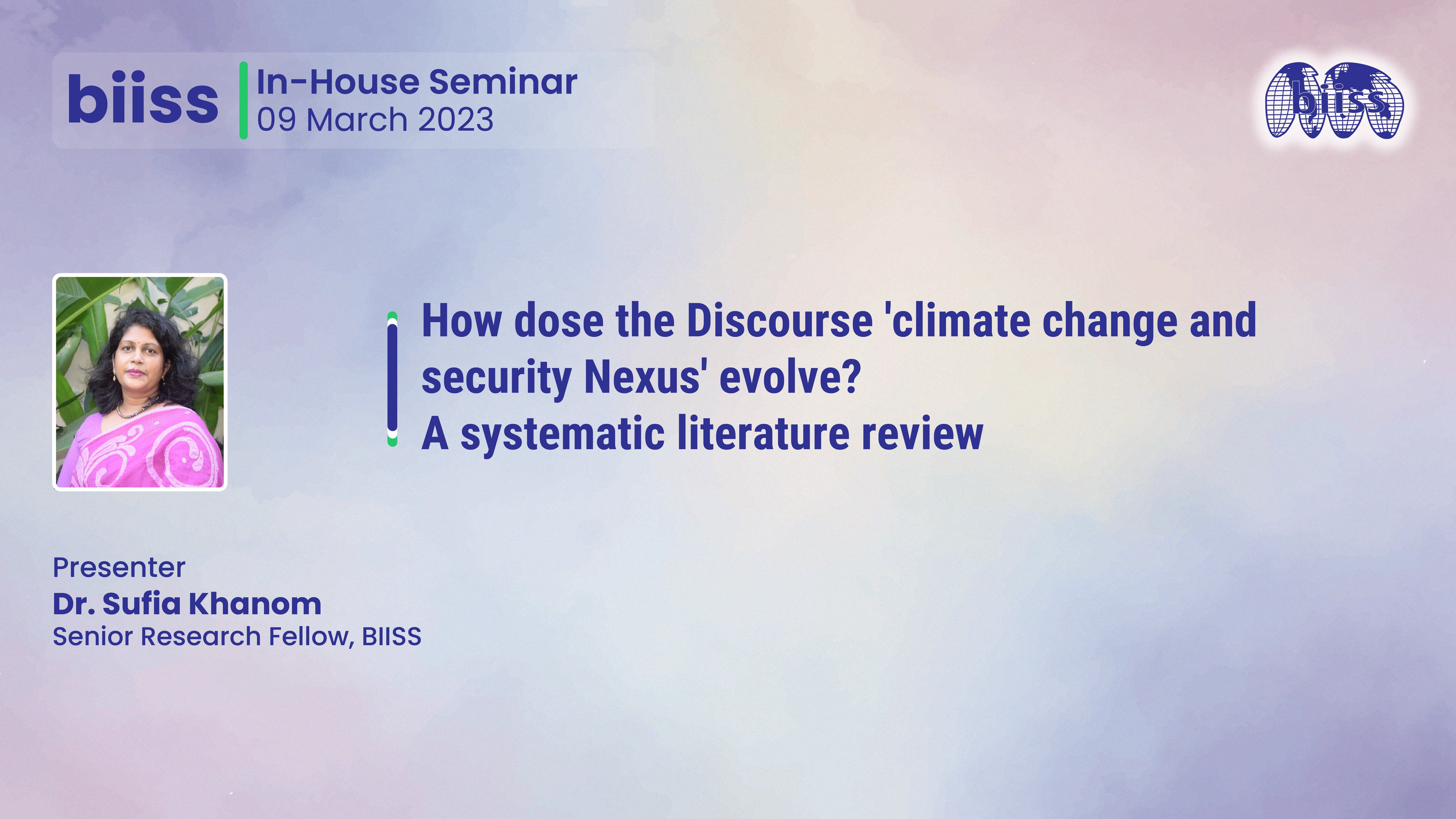"How dose the Discourse 'climate change and security Nexus' evolve? A systematic literature review

This in-house seminar presents the findings of a systematic literature review tracing the evolution of the "climate-security nexus" discourse in academic and policy circles. The concept of climate change as a security threat has gained significant traction over the past two decades, moving from a niche environmental issue to a mainstream concern in national security and international relations. This presentation will map this intellectual journey, identifying the key milestones, influential publications, and pivotal events that have shaped the discourse. The review will categorize the evolution of the debate into several distinct phases: from early conceptualizations of climate change as a "threat multiplier" exacerbating traditional conflicts, to more recent understandings of its direct and complex impacts on human security, state stability, and military readiness.
The seminar will analyze the different causal pathways that link climate change to insecurity, as identified in the literature. These include resource scarcity (e.g., water wars), climate-induced migration leading to social tensions, extreme weather events overwhelming state capacity, and the geopolitical competition arising from new shipping routes in the Arctic or the green energy transition. The presentation will also critically examine the critiques of the "securitization" of climate change, addressing concerns that framing it as a security issue could lead to militarized responses rather than sustainable development solutions. By systematically reviewing and synthesizing a vast body of literature, this seminar will provide a clear and structured understanding of how the climate-security nexus is conceptualized today. This will serve as a vital foundation for BIISS researchers and policymakers to engage with this critical discourse and to formulate Bangladesh-specific analyses on how climate change impacts its national security.